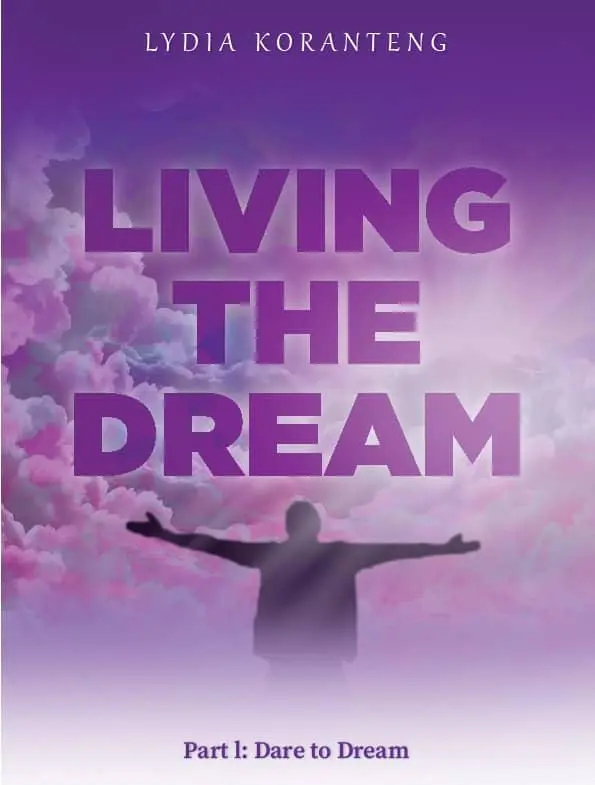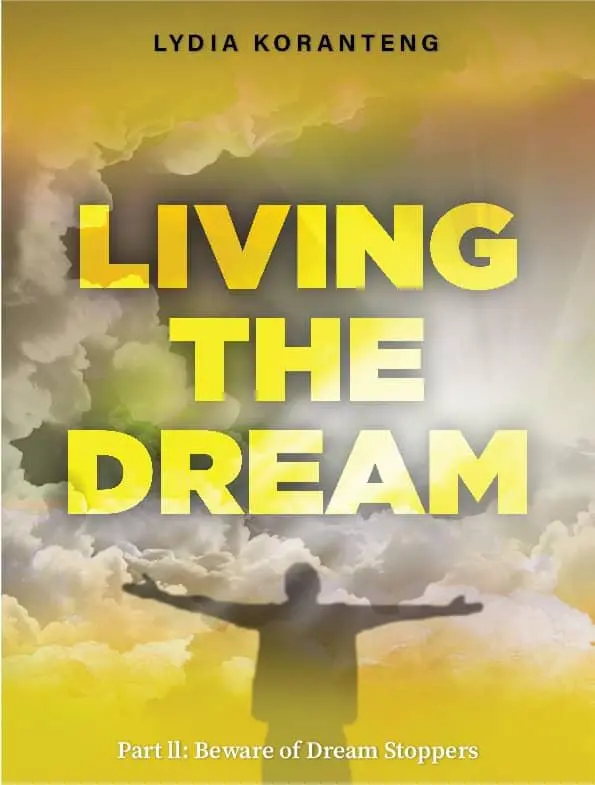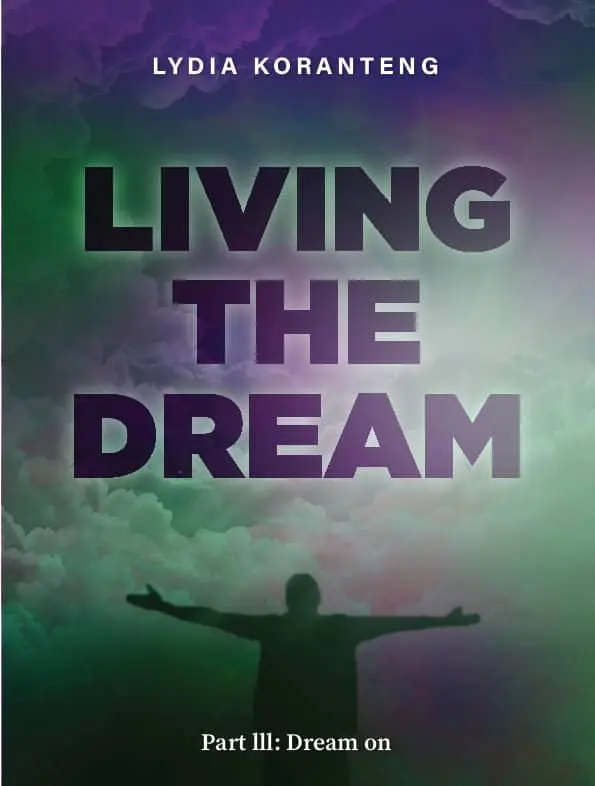
Publications
Mrs. Koranteng is the co-founder of Reaching Out Foundation- Uk, the Reaching Out Widows Ministry, and the Reaching Out Fashion school in Ghana.
She is the author of God Moments Testimonies and a three-pack series “Living the Dream” published in December 2020.
Living The Dream

Living the dream – Dare to dream
In this 1st part of this series of Living the Dream, I challenge the reader to dream. This means I am actively encouraging you to be intentional, purposeful and decisive about the act of dreaming. Rick Warren has put this beautifully in his “Time to dream: Trusting God to open doors”, when he said Our dreams define, identify and energize us. Great and good dreams determine who we are.

Living the dream –Shake off the dream stoppers
In part I of Living the dream series – Dare to dream I looked at the various factors that often stand in our way of progressing in life namely: procrastination, fear,doubts, not willing to take risks, lack of strategy, bitterness, unforgiveness, Anxiety and adversity.

Living the dream – Dream on
In part II of this book Living the dream series- Shake off the dream stoppers, I looked at the vipers of cynicism, criticism and calamity and used Paul and Jabez as examples in shaking off these dream stoppers to enable us to make progress. We have to be deliberate about ignoring these dream stoppers, whose main aim is to ensure we remain stagnant, hence reason for shaking them off.
God Moments

God Moments: Testimonies
The role of Christian testimony is often misunderstood. Testimony is often seen by others as merely the story of the person testifying. But it is really the telling of a part of that person’s life within the framework of the larger story of how what God made has been brought back together with its Creator, the greater story of the Good News and of the gathering of believers which that Good News created.
From Rev Lydia……


